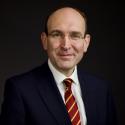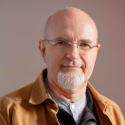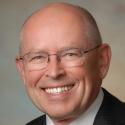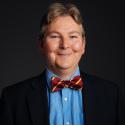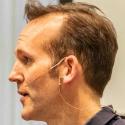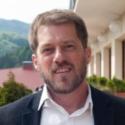2021 Theologians Network
- Image

Many evangelical theologians teach in universities, seminaries, and colleges with little opportunity for dialogue, fellowship, and encouragement from their evangelical brothers and sisters. The Theologians Network has been designed to provide this context and to make available an opportunity to interact with some of the world's leading evangelical scholars.
Applicants should be involved in full-time theological education (such as teachers, professors, and theology students).
Network Leadership
Network Speakers
Leonardo De Chirico is the pastor of Breccia di Roma, a church that he helped plant in Rome in 2009, and Chair of the Theological Commission of the Italian Evangelical Alliance. Previously, Leonardo planted and pastored an evangelical church in Ferrara, Italy from 1997 to 2009. He earned degrees… Read more
Wayne Grudem is Distinguished Research Professor of Theology and Biblical Studies at Phoenix Seminary in Arizona. He is a graduate of Harvard (BA), Westminster Seminary-Philadelphia (MDiv, DD), and the University of Cambridge (PhD). He has served as the president of the Evangelical Theological… Read more
Steffen G. Jenkins is half German, half Welsh, was born in Spain but again in England. He serves as Senior Lecturer in Greek and Biblical Studies at Union School of Theology in the United Kingdom. He has served at various seminaries in Cuba, as tutor in Biblical Languages at Tyndale House (… Read more
Dirk Jongkind is the Academic Vice Principal of Tyndale House, Cambridge, and an Affiliated Lecturer at Cambridge University. His main scholarly interest is the text and language of the Greek New Testament. He is also the editor of the Tyndale House Greek New Testament… Read more
Josh Moody (Ph.D., University of Cambridge) is the senior pastor of the historic College Church. He is the president and founder of God Centered Life Ministries, which proclaims God’s Word worldwide through daily broadcasts on Moody Radio, One Place, podcasts, and live-streaming on … Read more
Michael Reeves is President and Professor of Theology at Union School of Theology in the UK. He is a Senior Fellow of Newton House, Oxford, and speaks and teaches regularly worldwide. Previously he has been Head of Theology for UCCF and an associate minister at All Souls Church, Langham Place,… Read more
Ádám Szabados is a Hungarian theologian and the leader of the Hungarian Evangelical Forum. Until 2017 he had been a pastor for 20 years. He is married to Dóra and has two adult sons. He studied English literature and linguistics at the University of Veszprém (MA equivalent, with honours), and… Read more
Network Programme
Sunday, 16 May
Friedrich Schleiermacher is known as the father of ‘modern’ or liberal theology. What made his thought so distinctive, revolutionary, and influential? This session will seek to understand the roots of theological liberalism through an analysis of Schleiermacher’s thought.
Quite a number of written sources from the times of Jesus and his apostles were found in Jerusalem and its environs, but they are merely seen as evidence of the (scribal) elite’s literacy. This scribal literacy is estimated to have affected not more than ~10% of the society, although it is admitted that a larger part of the society was able to read. However, if we move only some miles eastwards towards Jordan and Syria and their adjacent regions, the evidence points to another direction, revealing the fact that persons from all parts of society were able to read and to write, without having formal scribal education. How should we interpret this intriguing discrepancy, and what can the “eastern” evidence contribute to the understanding of Judean literacy and scribal education?
Monday, 17 May
Written by Cardinal Robert Bellarmine (1542-1621), the Disputationes de controversiis christianae fidei (also called Controversiae) were the earliest attempt to systematize the various religious disputes between Catholics and Protestants. This work was used by Protestant theologians as representative of Tridentine Catholic theology. Bellarmine’s comprehensive and thoughtful critique of Protestantism provides a useful opportunity to review the core elements that were at stake in the theological debate after the Council of Trent. It is an enlightening source for all those interested in the Roman Catholic evaluation of Protestantism and vice versa.
For decades, Critical Theory has been influencing Western thinking. Despite the failed Marxist experiments of the 20th century, there is a growing movement in the Western church that uncritically accepts the premises and implications of Cultural Marxism and incorporates them into Christian theology. This session aims to explore the roots and leaves of Critical Theory and evaluate its influence.
Tuesday, 18 May
The Mosaic covenant, which began at Exodus 20, was terminated when Christ died. Christians are no longer directly subject to the laws of the Mosaic covenant, but now live instead under the provisions of the new covenant. However, the Old Testament is still a valuable source of ethical wisdom when understood in accordance with the ways in which the New Testament authors use the Old Testament for ethical teaching, and in light of the specific changes brought about by the new covenant.
The ceremonial laws, and frankly most of Leviticus, are on any short-list for neglected passages in the Bible. Prohibitions of certain foods are stellar examples of why the Law has nothing to do with our ethics. We will attempt to read them within both the big sweep and the tiny details of how God revealed himself through Moses. We will find good reasons to believe Jesus when he said that the whole of the Law was about him, and that it predicted the spreading of the gospel from Jerusalem to the ends of the earth (Luke 24:47).
Wednesday, 19 May
Jonathan Edwards was one of the greatest American thinkers and theologians. He was also at the heart of the transatlantic global revival known as The Great Awakening. In recent decades, there has been an academic rediscovery of Edwards that has bled over into a popular resurgence of interest in his preaching and writing. At the heart of Edwards’ contribution to evangelicalism is his grasp of and response to the secularizing tendencies dormant in, as well as decisive to, the Enlightenment. In many ways, Western Culture as a whole still reflects a discourse that interrelates with its Enlightenment heritage. Edwards can help us as model and method in our interaction with the Enlightenment-influenced secularization within which we work on a daily basis.
Sceptics have a variety of ‘knock out’ arguments against Scripture. Often these arguments are lingering questions in Christian minds too, which is the basis for their persuasiveness. In this talk we will dissect the various types of arguments against the Bible and how to think about these as ‘apologists’. This overall picture will help us to prepare our response and point us at ways to keep the Gospel central. We will discuss questions about the reliability of the wording of the Bible, its historical content, and its ethical content / moral framework. In our reflections we will see how the central message of Jesus’ death and resurrection can be interwoven in our interactions.

